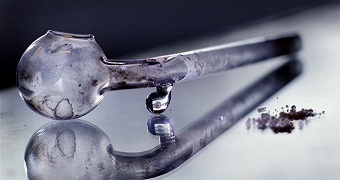how alcohol effects on different parts of the body ?

The effect of alcohol on the human body:
The active substance of alcoholic beverages is ethyl alcohol, in other words, ethanol. In addition to entering the body through alcohol, it is also produced naturally. For example, glucose metabolism results in small amounts of ethanol in the blood. This is called endogenous ethanol. Scientists are trying to prove the synthesis of endogenous ethanol through the gastrointestinal tract as a result of carbohydrate metabolism, but so far without success.
Drinking alcohol in any amount affects many processes within the body.
Digestion
Alcohol is a high-calorie product, but often people who regularly drink alcohol do not suffer from overweight problems. Basically, those who drink at the festive table and with abundant snacks have problems with it.

Studies have shown that the calories from alcohol are not used efficiently but increase the metabolic rate. That is, hunger grows due to these empty calories. This leads to the fact that the burning process increases and calories do not turn into fat, but the appetite grows, provoking the urge to overeat. There is also a link between the love of sugar and alcohol: people who often drink are more indifferent to sugary foods.
Brain
Ethyl alcohol consists of two carbon atoms (C), several hydrogen atoms (H), and hydroxyl (OH). Penetrating into the body, this substance changes the connections in the brain and affects neurotransmitters. These are biologically active substances involved in the transfer of information and signals between neurons and other cells.
Ethanol formula
A prolonged concentration of alcohol in the brain destroys connections between neurons, which can lead to dementia. Having reached the brain, alcohol interferes with the normal functioning of glutamate (it plays an important role in the functioning of the body since it makes up 25% of all amino acids).
With prolonged alcohol consumption, the brain develops intolerance to ethanol and sensitivity to glutamate. This is how the withdrawal syndrome, known as withdrawal syndrome, appears.
If a person consumes alcohol for a long time or has an alcohol dependence, then with a sharp cessation of ethanol intake, a large amount of glutamate is released in the body. The condition of the body is accompanied by convulsions, fever, anxiety, psychosis, insomnia, or delirium tremens. Withdrawal syndrome lasts from three to seven days, after which the body returns to normal.
Memory
Research shows a strong link between alcohol and memory impairment. With prolonged use of ethanol, memory functions begin to fail in small tasks. It is believed that alcohol is associated with cognitive learning ability and affects the development of dementia.
Since alcohol disrupts the normal absorption of thiamine, this can gradually lead to the development of Gaia-Wernicke syndrome (brain damage). Thiamine belongs to the B1 group and is ingested with various foods, but if you consume alcohol and do not follow a normal diet, this will lead to a lack of it and to impaired memory function, confusion in thoughts, and problems with sleep. It is treated with the introduction of vitamin B1, but if ignored, the syndrome can provoke a coma.
Alcohol may also have a positive effect on memory. Scientists from the University of Exeter conducted a small study involving 88 people who occasionally drink alcohol in a company. To create more comfortable conditions, the subjects were tested at home.
In the first task, it was required to memorize words to which an extra letter was added. For example - letter. After that, half of the subjects were required to drink as much alcohol as they saw fit within two hours. This was followed by a new stage of tasks with memorizing pictures, after which the subjects continued to drink.
The next day, it turned out that, on average, everyone drank about 83 grams of alcohol. On repeat tests, subjects who drank soft drinks performed similarly, while people who drank alcohol performed better. Those who drank more alcohol had better results.

Can you put water in a tibetan singing bowl
- Distinctive singing bowls can likewise have various tones and pitches and surprisingly connect with explicit chakras.

what are modern drugs and their effects ?
- Ghamkol Decent Rehab center is the most trusted and reliable Drug Addiction Treatment Centre in Lahore. A leading organi

How to treat a drug addict person ?
- Ghamkol Decent Rehab center is the most trusted and reliable Drug Addiction Treatment Centre in Lahore. A leading organi

6 signs in the body that indicate emotional problems
- Body and mind are a whole. Emotional problems, therefore, always leave traces in the body.

